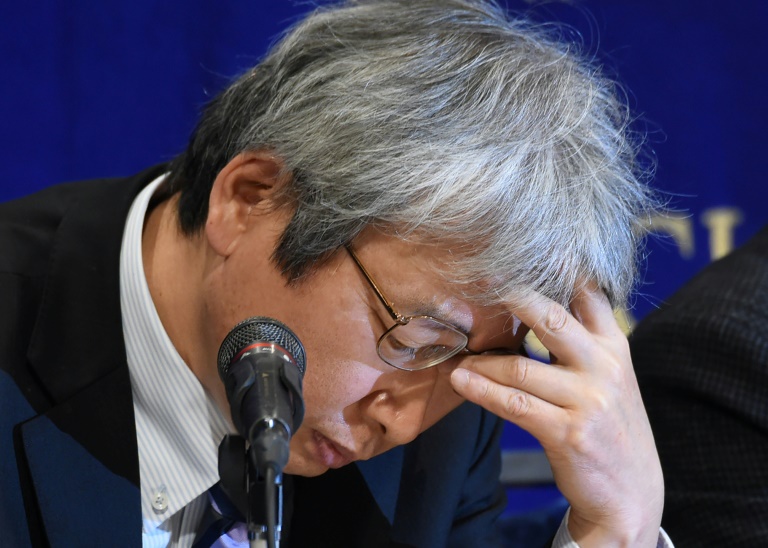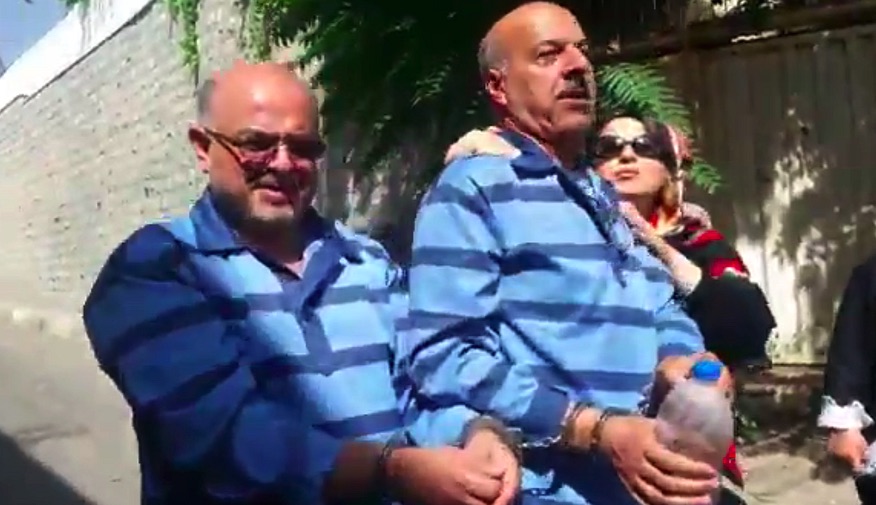The Lawyers General Syndicate, Egypt’s oldest and largest professional association, along with its 21 regional branch syndicates, remains dogged by seemingly endless infighting.
Only one month ahead of branch syndicate elections, over 2,000 lawyers congregated at the syndicate’s Giza branch on October 31 where they heatedly debated a proposal to withdraw confidence from newly-elected Syndicate President Hamdy Khalifa and Syndicate Council Member Hisham el-Komy on charges of financial misappropriation. The accusations stem from improprieties allegedly committed when both men were serving council members of the Giza branch syndicate from 2001 to 2009.
Roughly 1,500 Giza lawyers called for an emergency general assembly meeting to vote on the motion.
The charges are based on two lawsuits filed against Khalifa and el-Komy before the general prosecutor in October. The first of these asserts the misappropriation of LE19.6 million in lawyers’ contract registration fees (charged by the syndicate upon the signing of every contract for legal services), while the second charges that legal books and agendas worth LE916,000 went missing from the Giza Syndicate’s inventory.
Prior to these two lawsuits, former syndicate president Sameh Ashour had filed a report to the Central Auditing Agency (CAA) in 2006 alleging financial irregularities at the Giza Syndicate between 2003 and 2006. These charges put Khalifa — closely aligned with the ruling National Democratic Party (NDP) — and el-Komy — affiliated with the Muslim Brotherhood (MB) opposition movement — under close financial scrutiny.
According to a CAA follow-up report issued in June 2007, the syndicate’s Giza branch responded to most of the charges made in Ashour’s report, with the exception of "four outstanding points which are still being investigated." The outstanding points of contention between the syndicate and the Giza branch involve the transfer of lawyers’ contract authorization fees from branch syndicate coffers to those of the general syndicate.
Power politics among competing camps of Nasserists, the MB, independents and, to a lesser extent, the NDP, have divided — and often paralyzed — the syndicate in recent years. Political friction climaxed in the run-up to General Syndicate elections in May 2009, which saw Ashour ousted from the presidency and replaced with the MB-backed Khalifa.
Now, in advance of upcoming branch syndicate elections scheduled for December, local party politics have intersected with regional power balances, resulting in a slew of angry accusations and counter accusations.
In an effort to ease the brewing tension, the government has imposed several intrusive new regulations on the operations of all professional syndicates, not only to check alleged financial irregularities but also to contain the influence of opposition — especially Islamist — elements.
On this basis, the government issued Law 100/1993 with the stated aim of "guaranteeing democracy in professional syndicates," which imposed set quorums on syndicate elections. These quorums apply only to syndicates — no such quorums are applied to parliamentary, municipal or presidential elections.
"The ruling NDP and the outlawed MB are complicit in corruption and financial embezzlement," said Deif Allah Sidqi, an independent lawyer from Giza running in upcoming syndicate branch council elections and one of the lawyers that filed the initial lawsuit against Khalifa and el-Komy. "Over 19 million pounds remain unaccounted for here at our syndicate.”
Sidqi told Al-Masry Al-Youm English Edition: “The branch syndicate claims this money was invested in the construction of a lawyers’ club in 6 October City when in fact this money was squandered. The club is shoddily constructed and requires an additional LE10 million for reparations. Another LE1 million worth of legal documents, books, and agendas have also gone missing from the syndicate."
"Instead of being held accountable for financial mismanagement, Khalifa and el-Komy were instead both elected to higher offices in the general syndicate," Sidqi added.
For his part, Hisham el-Komy — who identifies himself as an "independent ideologically affiliated with the MB" — insists the charges lack foundation.
"The claims that LE19.6 million are unaccounted for are baseless. This money is clearly accounted for and we’ve responded to the CAA’s queries and dispelled false accusations," el-Komy told Al-Masry Al-Youm English Edition. "The agency annually inspects all our accounts and we’re always happy to cooperate."
"These false claims are being exploited by Sidqi and [Giza branch interim president Abul Naga] el-Mehrizi to benefit their electoral campaigns," el-Komy added.
El-Komy went on to say that he and Khalifa had established an effective partnership despite their competing political affiliations. Both men, he said, pride themselves on “taking off our political robes and hanging them outside the doorstep of the syndicate."
"It’s through teamwork that we were able to increase the Giza Syndicate budget from a mere LE80,000 in 2001 to a current budget of over LE2 billion," he added. "With these additional resources, we’ve been able to build both the lawyers’ residential city and the lawyers’ club in 6 October City."
As for the transfer of fees from the Giza branch to the General Syndicate, el-Komy explained that, according to Law 17 of 1983 regulating the legal profession, "the only fees that we are legally obliged to send to the General Syndicate are lawyers’ membership fees, which we did." Other monies accrued from the registration of lawyers’ contracts, he added, "are to be used in the funding of the branch syndicate’s projects and services."
However, the CAA report states that, according to an internal financial charter passed by the General Syndicate council in 2001, "lawyers’ contract registration fees are to be channeled to the General Syndicate."
El-Komy counters this assertion by saying that such contract fees "are the only source of income for the branch syndicates, since the General Syndicate doesn’t provide branch syndicates with any funding."
At the Giza branch, independent Lawyer Mohammed Abdel Aleem bemoaned what he calls the "insufficient support and services" provided by the syndicate.
"Our rights are being swept away. We have virtually no social aid or health care services at our syndicate," said Abdel Aleem. "We demand that those responsible for this mess be brought to justice immediately."
Lawyer Gamal Eid, director of the independent Arab Network for Human Rights Information, expressed doubt that the lawsuits alleging financial misconduct would ever reach trial.
"So many similar suits have been filed in the past against Lawyers Syndicate council members, yet nothing comes of them," he said. "I also don’t expect that any council member will actually be recalled, or be subject to a vote of no-confidence, since this has never transpired in the history of the Lawyers’ Syndicate — although some council members have been imprisoned in the past for different reasons."
First established in 1912, Egypt’s Lawyers’ Syndicate has a long history of financial delinquency and political conflict. The state has responded to repeated charges of financial misconduct with the imposition of two measures, namely "judicial administration" and "judicial sequestration."
Judicial sequestration is a court-ordered takeover of the syndicate, enforced by the government when charges of corruption or financial misappropriation are formally leveled against syndicate councils and/or presidents. Sequestration was imposed on the Lawyers’ Syndicate, along with its 21 associated branches, from 1996 to 2001 following allegations of embezzlement.
Judicial administration, meanwhile, can be imposed on a syndicate if its general assembly is unable to garner the required voter turnout. It effectively establishes minimum quotas, enforced by law, on general assemblies of all professional syndicates. Judicial administration was imposed on the Lawyers’ Syndicate from February 2008 to May 2009, following claims of inconsistencies in syndicate voter lists.
On this basis, the Lawyers’ Branch Syndicate in Cairo has remained under judicial administration since 1992.




